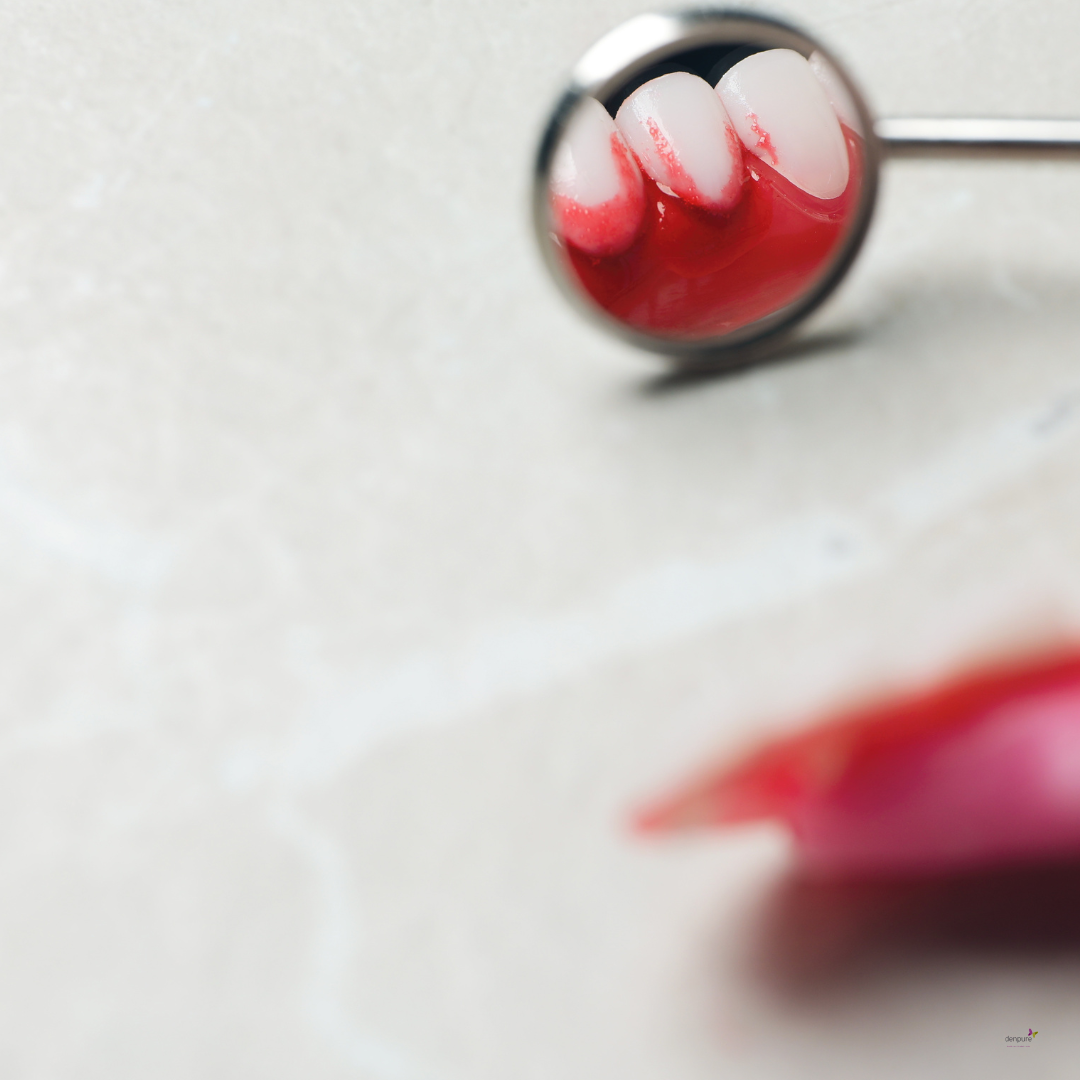Bleeding gums is one of the most common dental issues affecting adults. At one time or another, most of us will have experienced bleeding gums, as plaque levels can easily reach the point where they suffocate the gums. If bleeding gums becomes a weekly (or daily) occurrence though, it’s time to see a hygienist.
Bleeding gums occur when your gum line is inflamed, caused by the presence of plaque. With plaque comes gum disease, a condition that erodes the gums, supporting ligament, and jawbone beneath.
Gum disease isn’t something that will just go away on its own.
The bare minimum required to reverse the onset of mild symptoms like bleeding gums is a scale and polish clean with the hygienist.
Bleeding is caused by plaque, a harmful by-product produced in the mouth after you eat. Even foods containing very low amounts of sugar will produce plaque, some of which gets left behind, even if you are brushing and flossing twice a day.

Your hygienist can help reduce bleeding by
Ignoring gums that bleed daily or weekly will only exacerbate the issue and cause a domino effect of other issues.
Untreated bleeding gums causes:
Bleeding gums that are accompanied by symptoms including intense tooth sensitivity, loose teeth, and elongated-looking teeth indicate advanced gum disease (periodontitis).
A diagnosis of advanced gum disease doesn’t necessarily mean you will lose teeth as a result. However, the longer it goes untreated, the more likely teeth will become loose to the point of falling out completely or requiring an extraction.
If your dentist or hygienist has diagnosed advanced gum disease, there are several treatments that can be carried out to address the damage:
One of the questions we’re asked most regularly is ‘why have my gums started to bleed heavily since quitting smoking?’
This is a really good question, and it can be worrying to experience significant a sudden bout of bleeding seemingly out of nowhere.
Smoking is one of the biggest causes of gum disease, but it can be problematic for this reason: it can cause very little bleeding.
This might sound confusing. After all, your dentist is always telling you that bleeding gums are the first sign of peril for your gum health.
Smoking cuts off the blood supply to your gums, causing very little bleeding to occur, despite gum disease being present. After you stop smoking, a period of weeks later the blood flow to the gums is reestablished, which can cause a sudden amount of bleeding.
This isn’t something to be alarmed about unless it continues for 2 or so months after you’ve quit smoking.
We recommend a hygienist visit in the weeks after you quit smoking, to ensure your gums are recovering well, and that there are no underlying oral health issues that will undermine your fantastic efforts to stop.
Bleeding gums themselves won’t necessarily cause bad breath. The plaque causing your gums to bleed is usually the culprit; it gives off an unpleasant odour when it sticks stubbornly to your gum line.
If you are experiencing bad breath (whether you have bleeding gums or not) it’s worth getting your mouth checked over by a dentist, as you could be suffering with dental decay (a common cause of bad breath).
Our hygienist team are trained to a high level and have over 40 years of collective experienced in treating patients for symptoms of gum disease, and in stabilising and preventing the disease. Contact us to book your appointment.
They are fantastic communicators who can provide jargon-free guidance on how to stop the destructive effects of gum disease in the future.
Gum disease remains responsible for the majority of tooth loss that occurs in adults – but you don’t have to be part of this statistic.
Routine hygienist visits with our friendly team are a strong tool in your arsenal in the preventive effort to stop gum disease. We look forward to welcoming you.
Back to Blog
“Dr Roshani Dali is extremely professional and truly the best dentist I have ever had, with minimal discomfort, and she made me fee...”
“I am so impressed with the treatment I have had here - Quick Straight Teeth. The dentist gave me all the information I needed and ...”
“Just like anyone I was very nervous to see the dentist and at my initial consultation Mr Makhijani put me at such an ease that gav...”
“Dear Dr Mandeep Birah ! I would like to thank you for your very caring treatment for my daughter who has been very nervous patient...”
“Throughout my course of treatment I was given best care and attention by all dental team which I would love to recommend to all my...”

